341. AI is Coming: Interview with Anton Korinek
The discussion focuses on AI's impact on economic research, labor, taxation, and the importance of educating future generations about AI technology.
your daily dose of economic commentary
The discussion focuses on AI's impact on economic research, labor, taxation, and the importance of educating future generations about AI technology.

Camila Domonoske discusses Ford's decision to discontinue the F-150 Lightning electric pickup due to profitability issues, while retaining the Lightning name for a plug-in hybrid.

The discontinuation of Ford's electric pickup is attributed to lack of profitability despite positive reception, with plans to continue the Lightning as a plug-in hybrid.

Alina Selyukh discusses iRobot's bankruptcy due to debt and tariffs, leading to its takeover by a China-based supplier while assuring customers about device functionality.

An overview of the housing market in mid-December 2025 highlights increased inventory, depressed sales, and stable home prices despite economic challenges.
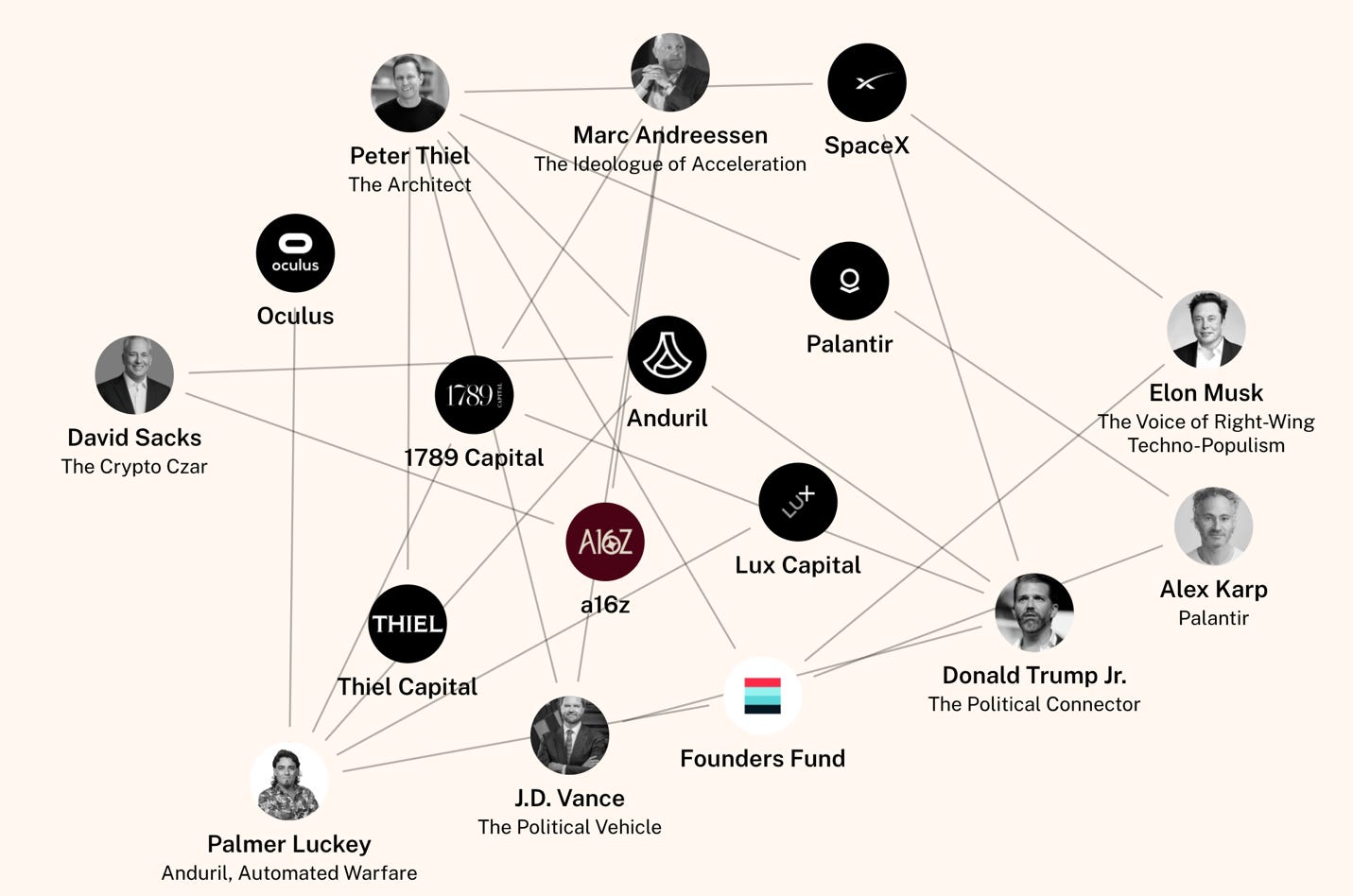
Paul Krugman discusses the implications of corporate mergers on democracy, highlighting the role of MAGA-aligned billionaires in undermining democratic institutions in the U.S.

The post explores player behavior in the game ARC Raiders, analyzing why it fosters a chill atmosphere despite its competitive nature using game theory concepts.

Noah Smith shares his thoughts on AI safety, discussing the potential risks of superintelligent AI and advocating for technological advancement despite existential fears.

Bill McBride discusses the slight increase in builder confidence in December, noting ongoing challenges in the housing market as indicated by the NAHB report.

The post discusses a week-over-week decline in active single-family housing inventory, highlighting seasonal trends and comparisons to previous years' data.
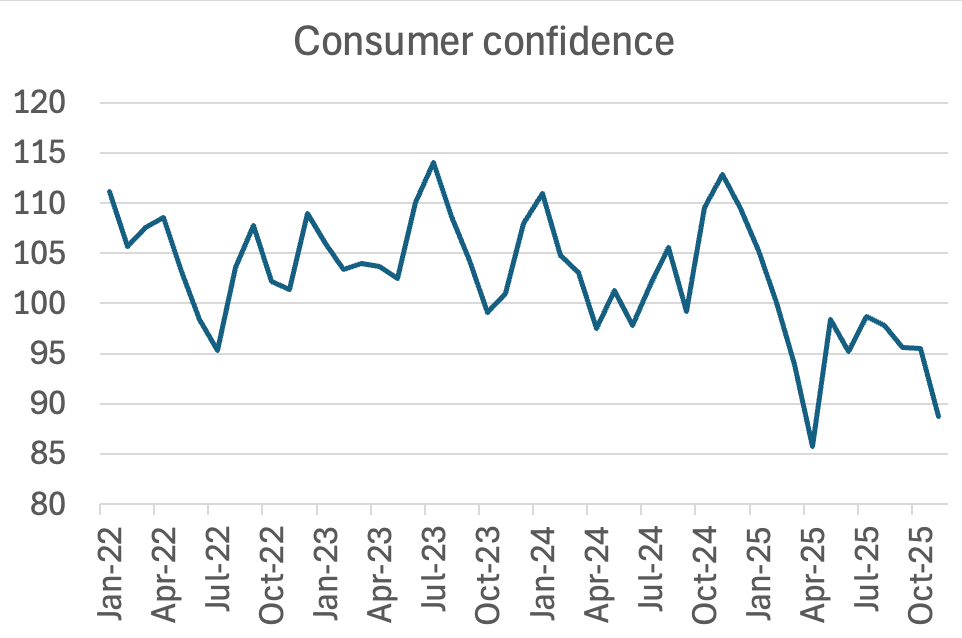
Paul Krugman discusses Americans' economic anxiety over affordability, highlighting the role of policy in addressing these concerns amidst political denial from Republicans.
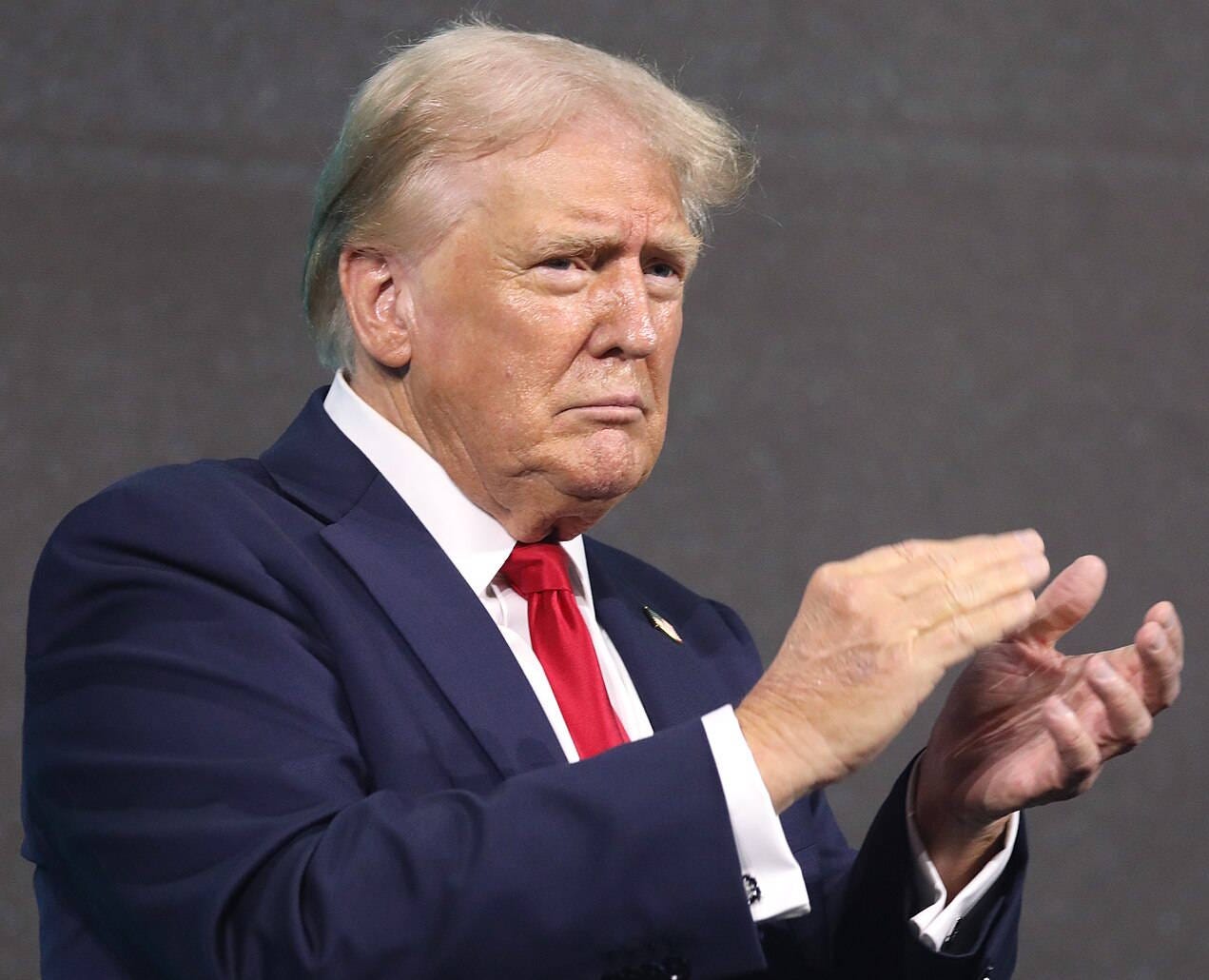
Noah Smith discusses the current state of the Trump presidency, highlighting setbacks and electoral challenges while cautioning against prematurely labeling him a lame duck.
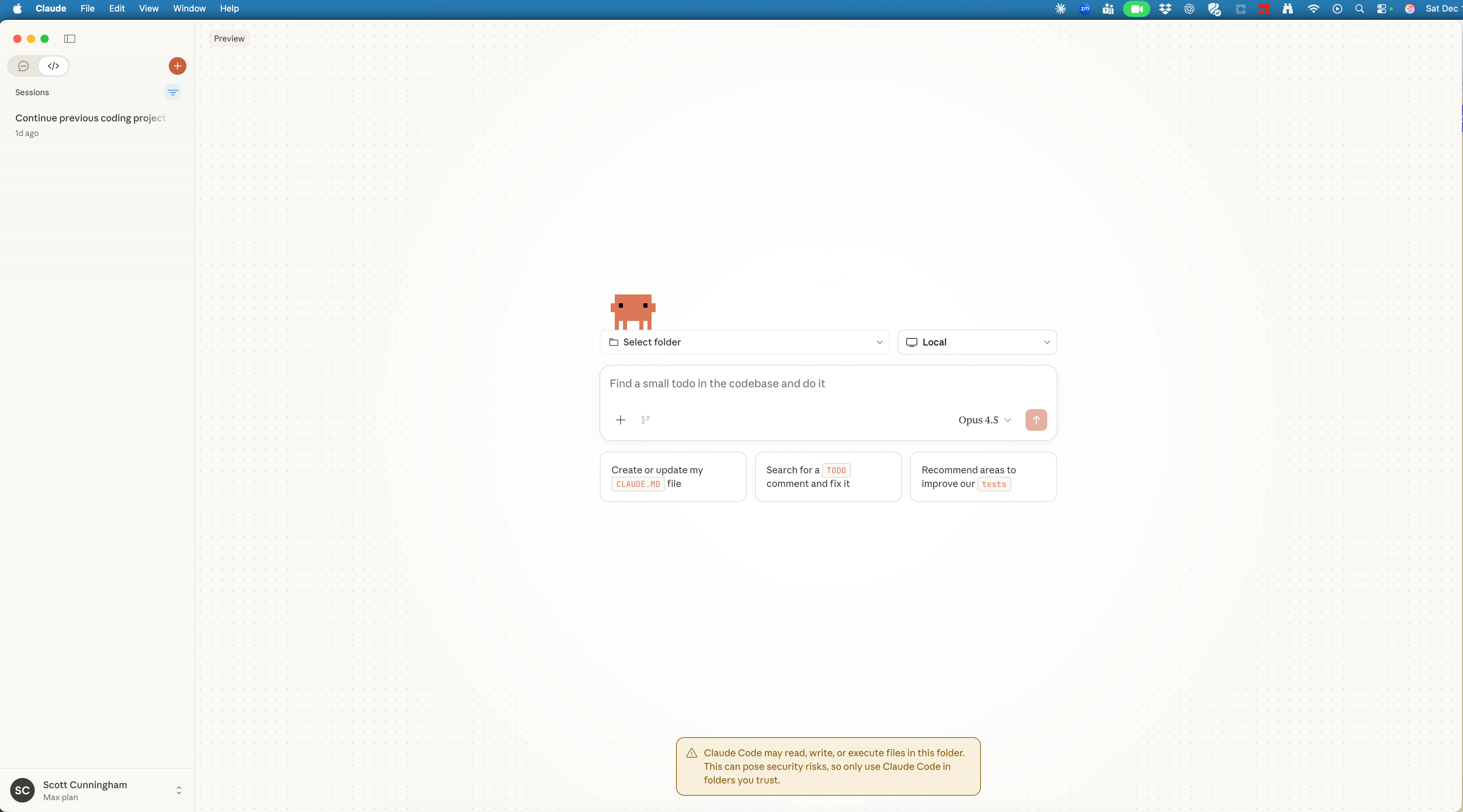
The author reflects on personal challenges with coding and organization in empirical research, sharing experiences and insights from a career in economics.
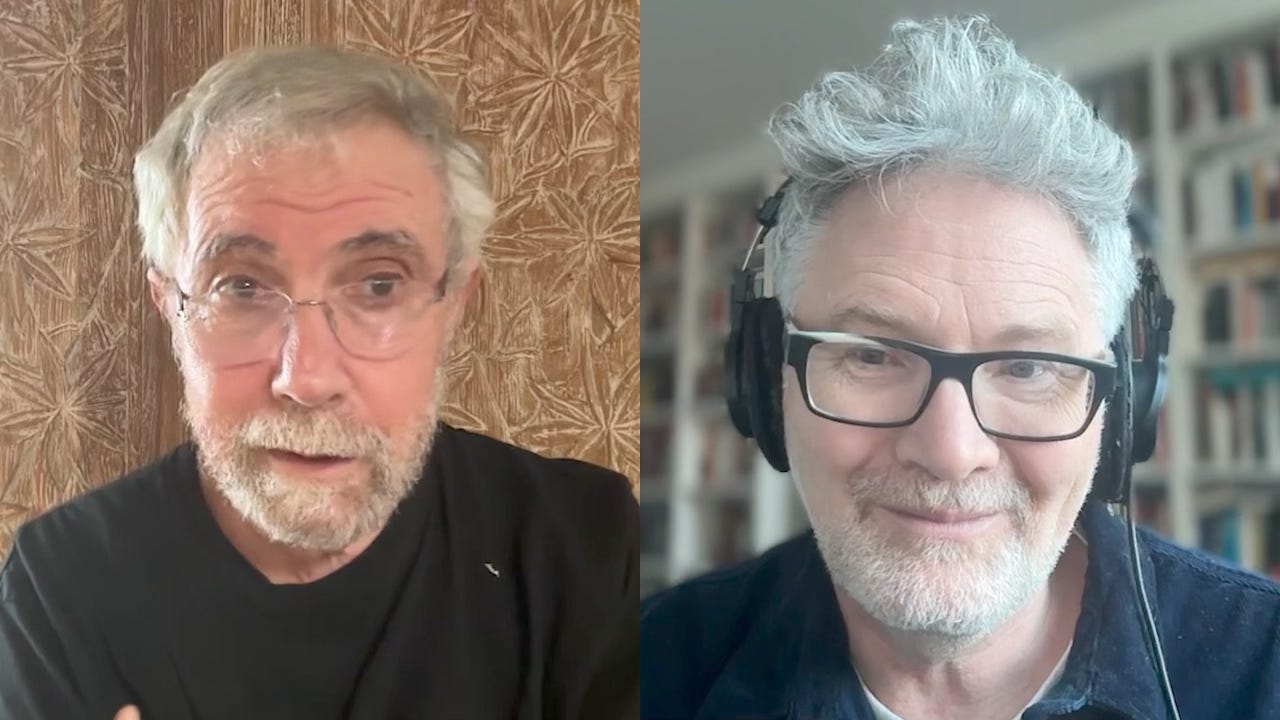
A discussion on the intersection of European politics and American foreign policy, focusing on Trump's views and their implications for transatlantic relations.

The post outlines the schedule for key economic reports and surveys to be released during the week of December 14, 2025, including employment and retail sales data.

The discussion centers on the Washington Post's AI-powered podcast that personalizes audio news digests from its articles for users.

An argument that buy now, pay later options are popular among holiday shoppers but require responsible use to mitigate risks.
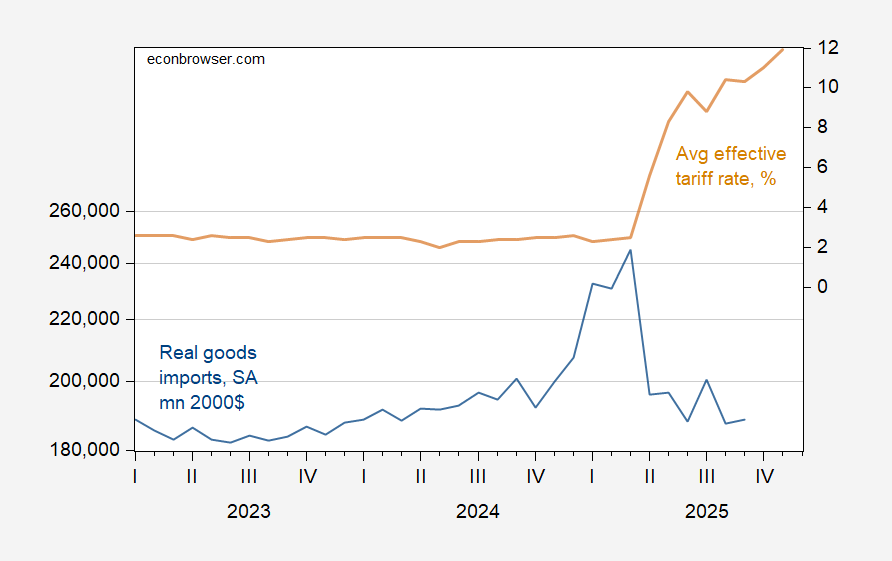
An argument that recent import decreases may be due to inventory adjustments rather than tariffs, with future trends uncertain amid slowing economic activity.

Timothy Taylor discusses the importance of government statistical agencies for providing reliable data on the economy and society, highlighting their historical significance and current challenges.
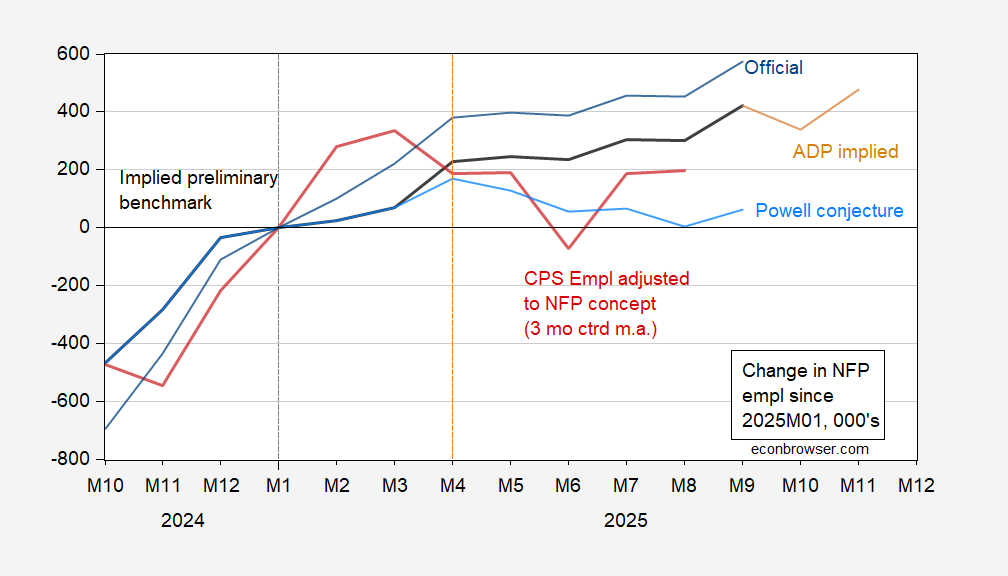
Menzie Chinn discusses employment trends, heavy truck sales, and the implications of potential recession indicators, emphasizing caution in interpreting historical data.